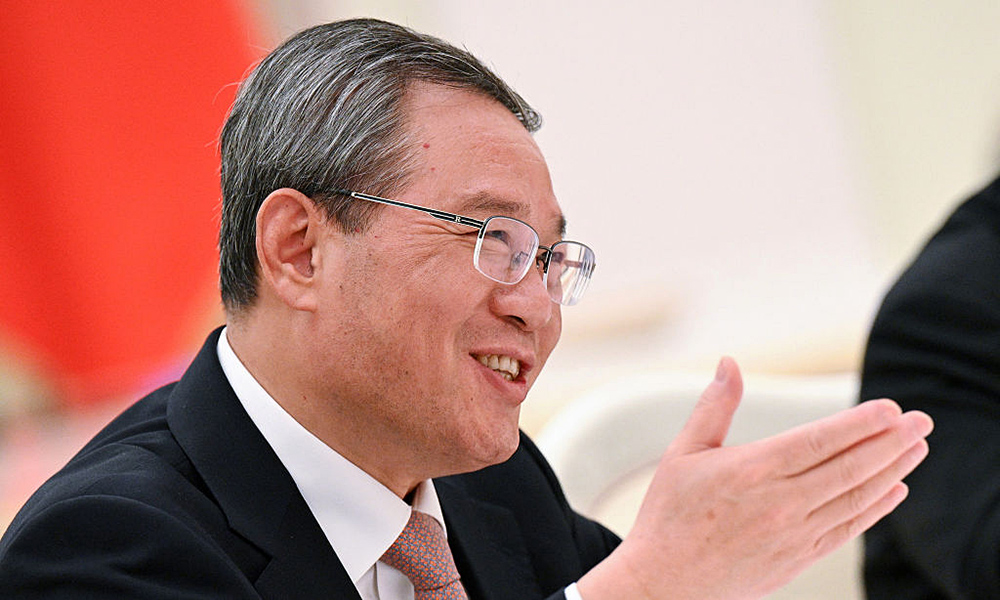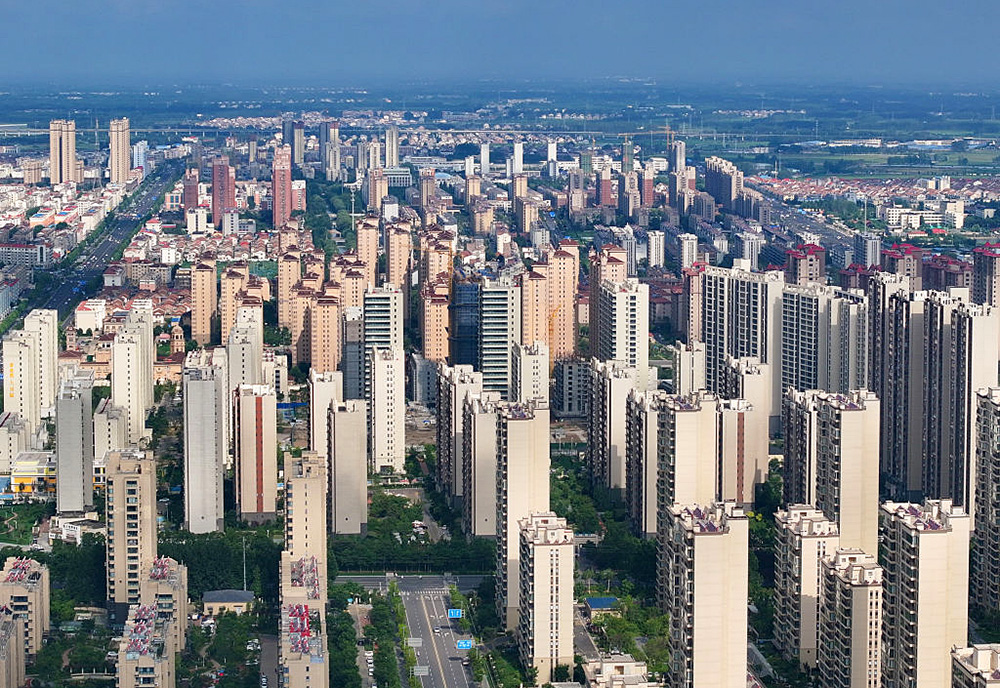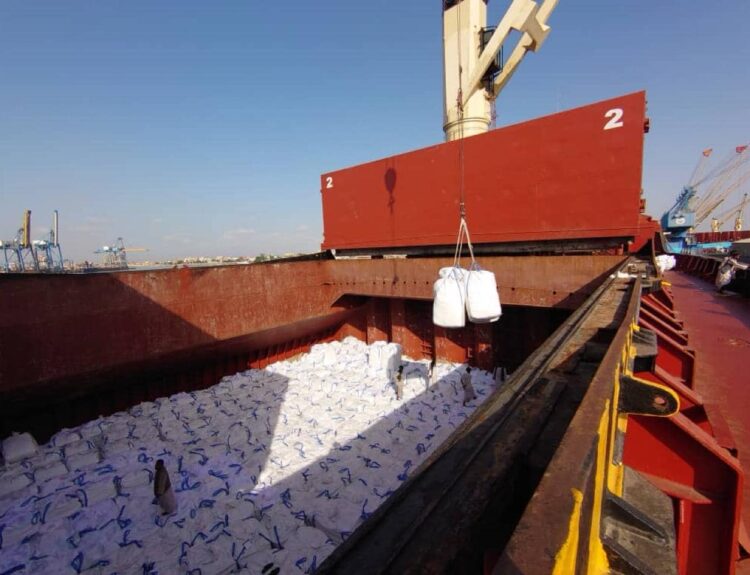The issues surrounding China’s economy have been a topic of increasingly intense debate for the last four years. Now, we have some figures to add to this discussion. For example, in July 2024, for the first time in 19 years, lending to the industrial sector has decreased. Additionally, production is down among the largest exporters of batteries for electric vehicles. The Chinese Communist Party (CCP) is trying to prevent the country’s economy from declining by stimulating domestic consumption. However, China’s industrial capacity far exceeds domestic demand, as it has always been geared towards aggressive exports. Meanwhile, foreign markets are increasingly closing their doors to Chinese goods. So, how will China’s economic slowdown impact the economies of the US, Japan, the UK, and the EU?
The Canadian government has announced the imposition of 100% tariffs on Chinese electric vehicles and 25% tariffs on steel and aluminium starting from 1 October. The Biden administration had earlier declared the introduction of 100% tariffs on Chinese electric vehicles in May 2024.
When the International Monetary Fund (IMF) published its forecast for global economic growth and that of specific major countries in July, it projected a 5% GDP growth rate for China in 2024, following a 5.2% increase in 2023. For 2025, the IMF’s expectation is 4.5%. This is a nightmare scenario for Chinese leaders, who, until recently, considered a minimum acceptable growth rate to be 6% per year. That figure was last achieved five years ago, in 2019, and the situation has deteriorated since. Due to the COVID-19 pandemic, China’s economic growth slowed to 2.2% in 2020. In 2021, following the previous slowdown, there was a rebound to 8.4%, but this figure should not be viewed in isolation from the 2020 results. Things worsened afterward: 3% in 2022 and 5.2% in 2023.
One could blame the overall poor global economic backdrop, but India—China’s closest competitor in these economic races—has a forecast of 7% for 2023 and 6.5% for 2025. This is almost a geopolitical insult.
However, it is not wise to place too much reliance on the IMF forecast in this specific case. In April, the IMF projected China’s GDP growth in 2024 to be slightly lower, at only 4.6%. Moreover, in April of this year, the IMF’s forecast for 2025 was worse—4.1%. So, why did the IMF improve its forecasts? Because it couldn’t keep up with the bad news. The next IMF forecast is expected to be released in October, which will likely be more realistic. Already, analysts from the international banking group UBS predict that China’s economy will grow by 4.9% this year, while Goldman Sachs has downgraded its full-year GDP growth forecast for China to 4.9% from a previous 5.0%, although it has raised its forecast for 2025 to 4.3% from 4.2%. As we can see, the bankers’ forecasts remain more pessimistic than the IMF’s estimates. Goldman Sachs also predicts a decline in oil prices due to its expectations of reduced demand from China. And, of course, Goldman Sachs associates this expected reduction in demand with the negative forecasts for China’s economic growth rate.
Why Does Beijing Have Problems?
There is no single cause for China’s economic slowdown. Instead, there is a bouquet of reasons, all of which are acting simultaneously in the same direction and amplifying each other.
The first reason is China’s aggressive policy towards its neighbouring countries and its support for Russia at a time when the Kremlin is waging an aggressive war against Ukraine. There is a sharp increase in demand from developed countries for a return to more peaceful times and a stable world order. China, along with Russia and Iran, is undermining this very world order.
In Tokyo, Brussels, Washington, and London, as well as in many other capitals, there is significant frustration with how Beijing has used the opportunities it gained from the open policies of developed countries. Developed countries hoped that open trade and access to modern technologies would encourage China to become more open, democratic, and neighbourly. However, the CCP is actively using its accumulated resources to undermine markets and advance the development of its military-industrial complex. The list of Beijing’s actions, which developed countries simply cannot ignore, is extensive:
- Demonstrative acceleration of the schedule for absorbing Hong Kong
- Flexing its military muscles in the Taiwan Strait
- State subsidies to corporations exporting high-tech goods to developed countries
- Flirting with totalitarian regimes like those in Russia and Iran
- Involvement in circumventing sanctions against Russia, which is waging an aggressive war against Ukraine, that is, in Eastern Europe
The second reason is the lessons learned by China’s trading partners following the outbreak of COVID-19. This outbreak led to severe economic consequences, particularly in developed countries, and highlighted Beijing’s disregard for the interests of its most significant trading partners. It is worth recalling that one of the key factors in the economic crisis in the EU and the US in 2020-21 was the disruption of supply chains based on Chinese export companies.
The response from the US, the UK, and EU countries could not be immediate, as their large economies are fairly inert systems. However, two years was sufficient for China’s economy to experience a new reality. Developed countries are now seeking and finding new partners. And it seems this is for good. The US and the EU are already building their supply chains for microelectronic components.
The third reason is the protective measures taken by developed countries against Chinese exports, which are supported by aggressive state subsidies from Beijing.
The fourth reason is the accumulation of fragility within the Chinese economy, which has been driven for many years not so much by market forces as by the directive requirements of the ruling party.
All of this together is putting pressure on China’s economic growth rates, which for decades have been based on free access to affluent and generous consumers in Europe and the US. In the last fifteen years, this has been further fuelled by a rapidly growing property market and its companion—mortgage lending. In fact, this market was sustained by the rising incomes of Chinese citizens and institutional investors. However, it seems that this locomotive is about to crash into a wall called ‘lack of demand.’

Photo: Premier Li Qiang promises to accelerate the country’s economy, but it will cost too much even for Beijing.
Soft Landing? Don’t Even Dream About It
According to official Chinese statistics, the country’s GDP grew by 4.7% in the second quarter year-on-year, which is significantly lower than the expected 5.1%. This is even worse compared to the +5.3% in the first quarter. It is important to note that the Communist Party of China (CPC) has a considerable influence on economic statistics. In a totalitarian country, statistics are not often objective. The National Bureau of Statistics of China (NBS) appears to be preparing to report even more moderate growth rates for the third quarter.
To boost the economy, the People’s Bank of China (PBoC) lowered key interest rates in July. The market responded with a slight increase in domestic consumption. Specifically, retail sales grew by 2.7% year-on-year in July compared to 2% in June. This could be seen as a market response to the government’s stimulation of consumption through interest rate cuts. However, in August, the PBoC did not proceed with further rate cuts, which suggests that domestic consumption might slow down.
In the industrial sector, there is an interesting development: profits grew in July, but production volumes decreased due to restrictions imposed by governments of countries that are traditional markets for high-tech industries, such as electric vehicles. Amid the decline in exports, production and bank lending also decreased in July—for the first time in 19 years.
Domestic consumption is becoming increasingly uncertain, while foreign markets are closing their doors to Chinese goods. The worsening expectations are logically leading to a weakening real estate market. The government is responding with promises of further stimulus, as announced by Premier Li Qiang during the August plenary session. Given that the situation in foreign markets is unlikely to improve, Chinese officials are focusing on domestic consumption.
Regardless of the outcome of the US elections, the opportunities for making profits in the premium American market will become increasingly limited for Beijing.
However, the Chinese government will have to rescue the real estate and construction market, which is rapidly declining. Sales of new homes fell by a staggering 19.7% year-on-year in July. Moreover, this process is accelerating— in June, the figure was -17%. Naturally, average prices for new and existing homes in 70 cities have been declining. As a result of this decline, a reduction in production in the construction industry, as well as in the building materials, construction equipment, and steel industries, is to be expected. This is already happening. For example, the price of iron ore delivered to Chinese ports has fallen by nearly 30% this year. This clearly illustrates the decline in demand for construction steel, and consequently for steel and raw materials used in its production.
Developed countries are only benefiting from this. Countries that are tired of financing Beijing’s geopolitical ambitions at the expense of their own consumers are striving for lower raw material prices and diversified supply chains. The next steps will likely be increasingly broad secondary sanctions for aiding Russia and other totalitarian regimes. Restrictions on access to modern technologies are also on the table, as the prospect of arming a potential adversary with one’s own hands is unlikely to be welcomed.
Interesting prospects arise from the potential outcomes of the US elections. Donald Trump is actively using the “Make America Great Again” rhetoric, while his competitor Kamala Harris is a follower of Joe Biden, who has launched a very expensive programme to repatriate chip production to the US. Therefore, regardless of the election results, the opportunities for making profits in the premium American market will become increasingly narrow for Beijing. It seems that China will have to pay for a more stable global economic order.
Source: The Gaze







